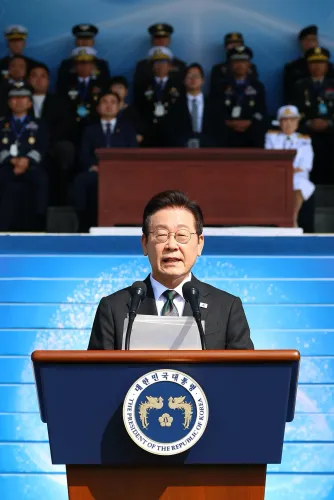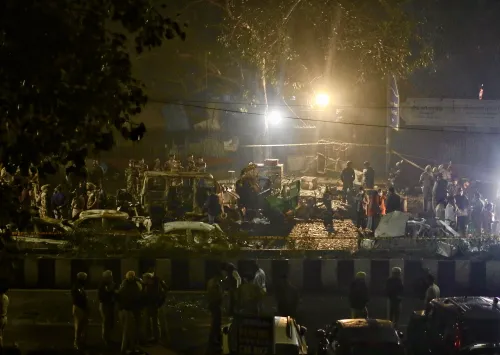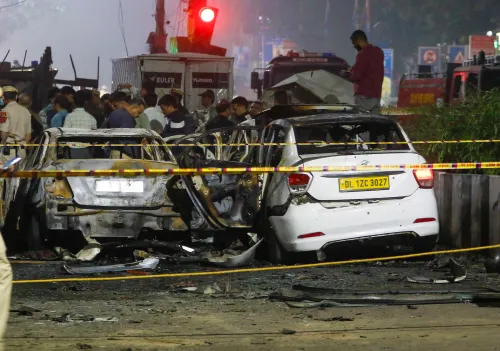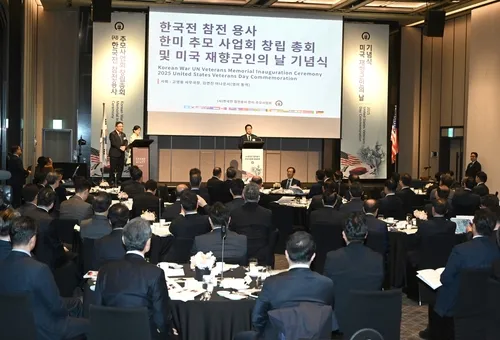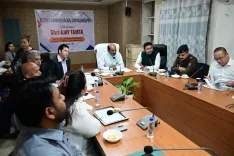How is South Korean President Lee Expanding Support for Border Regions?
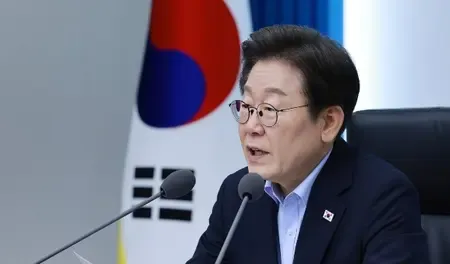
Synopsis
Key Takeaways
- President Lee Jae Myung is committed to supporting border regions.
- Gangwon Province will receive enhanced infrastructure investment.
- Past governmental policies faced criticism for being unjust.
- The initiative aims for balanced national growth.
- Military tensions continue to influence border dynamics.
Seoul, Sep 12 (NationPress) South Korean President Lee Jae Myung announced on Friday that the government intends to enhance assistance for areas adjacent to North Korea in recognition of their sacrifices and to foster equitable regional development.
During a community meeting with residents in Gangwon Province, situated south of the Demilitarized Zone (DMZ) that divides the two Koreas, Lee emphasized the importance of these border regions.
"Gangwon is the most significant tourist hotspot in the nation, yet it has also faced considerable challenges due to the ongoing confrontation between North and South Korea," Lee stated at the gathering in Chuncheon, approximately 85 kilometers northeast of Seoul, as reported by Yonhap News Agency.
"While we cannot entirely make up for the unique sacrifices faced by border regions like Gangwon, we will strive to ensure that living in Gangwon does not feel unjust," he continued.
Lee criticized previous administrations for enforcing stringent restrictions on border areas without providing adequate compensation, labeling such actions as "unjust."
He pledged that the government would broaden educational, cultural, and welfare facilities to enhance living standards in the region while aiming for balanced national growth.
Following the meeting, Lee toured a frontline Army unit in Hwacheon, located about 118 km northeast of Seoul, receiving briefings on military preparedness, according to vice presidential spokesperson Ahn Gwi-ryeong in a written statement.
Accompanied by Defence Minister Ahn Gyu-back, he visited an observatory and a guard post just south of the DMZ, as reported.
On August 24, a representative from the US-led UN Command (UNC) indicated that around 30 North Korean soldiers had recently crossed the inter-Korean border despite warning broadcasts, prompting the South Korean military to fire warning shots.
The official comments came after North Korea criticized the South Korean military for firing over ten warning shots at North Korean troops engaged in a border reinforcement project last week.
"The UNCMAC investigation team verified that approximately 30 members of the Korean People's Army (KPA) crossed the Military Demarcation Line (MDL) in an area where they were performing construction and maintenance activities," the spokesperson communicated via email, as reported by Yonhap News Agency. UNCMAC stands for the UNC Military Armistice Commission.
"ROK forces issued multiple warning broadcasts to inform the soldiers that they had crossed the MDL, but there was no response. Subsequently, ROK forces fired warning shots in a designated area to urge the KPA soldiers to return to the north side of the MDL," the official added.
ROK stands for the official name of South Korea, the Republic of Korea.

